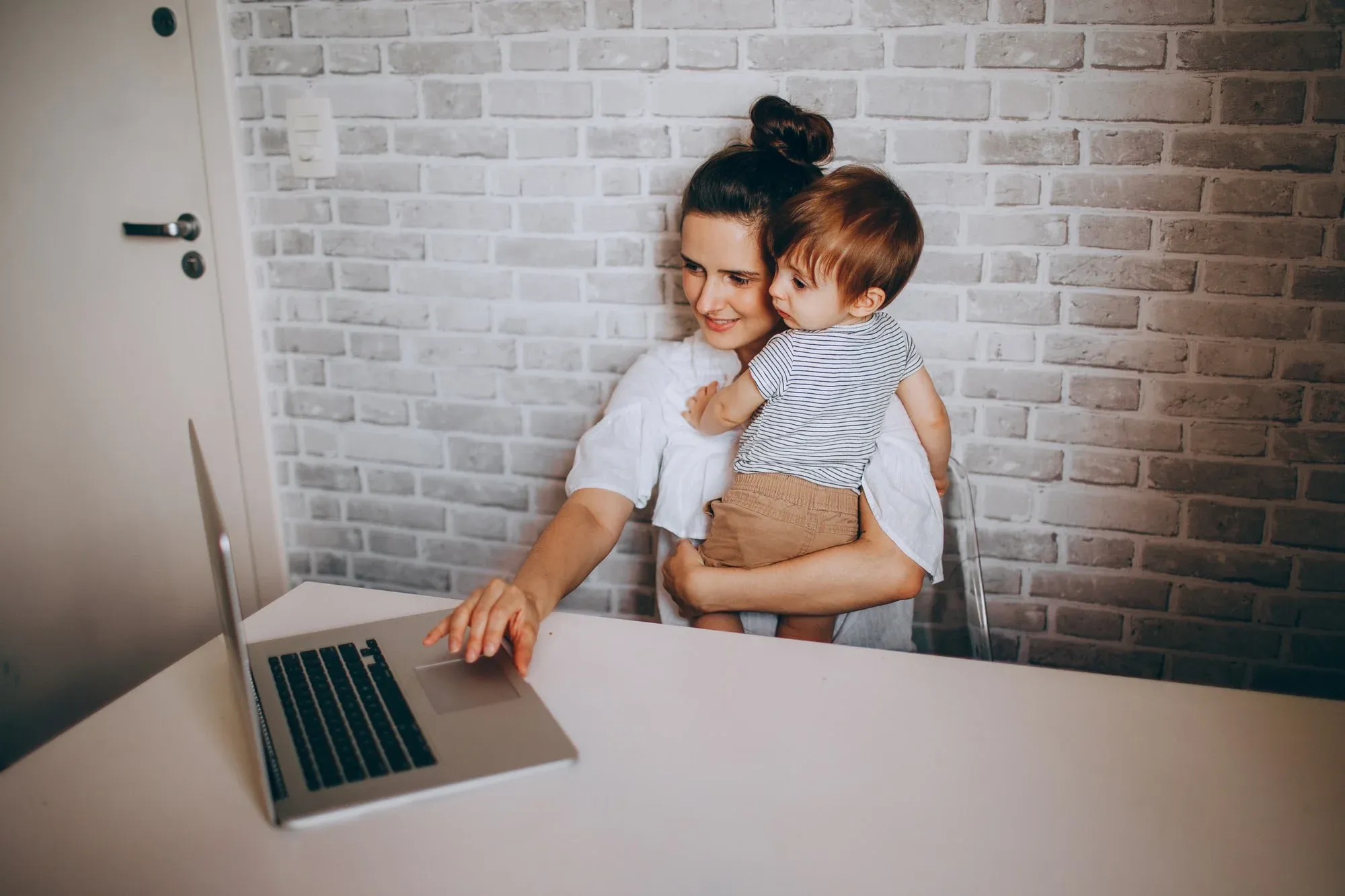You are more than your job

This blog post was written for the #AdventBlogs series, the theme of which was "It doesn't matter".
I’ve attempted to follow these blog posts in and amongst working and raising young feral babies for the last couple of years, but felt drawn to contribute this year. Particularly given the theme…
I envisage everyone is fed up of hearing the word “Covid”, but for me the pandemic has brought about a sense of clarity and focus. Specifically, it’s helped me to re-prioritise and really consider what is important.
I see myself as a staunch feminist and someone who firmly believes in having the choice to have both a career and a family; but trying to do both for me came with an earth shattering reality check. When my eldest son was born almost five years ago, I returned to work four days per week imbued with optimism and ideas of how I would continue exactly as I had with my career pre-children. Instead I found myself drowning in a plethora of seemingly never ending childhood illnesses, exacerbated by exhaustion, inordinately overwhelmed, and constantly resentful of my husband’s ability to continue as if nothing had happened. It got to a point where I felt I had no option but to make a change to my working pattern to try and somehow get a handle on things at home, and just one year post-return I reluctantly dropped my hours to two and a half days per week. While I’m very lucky to have been able to do this, and for many this would have seemed the ideal solution, work had formed such a huge part of my identity for so long and this decision felt forced not chosen. I had to let go of a lot of the ideals I’d held around being a working mum, because I truly didn’t feel like I could do both as I’d hoped. The world of work I inhabited just wasn’t one that was geared up for mums of young children.
Since then, my eldest’s immune system developed, the bugs subsided, and sleep finally improved! I managed to secure a promotion but the role required a full time commitment, not the four day per week one I had hoped for. This was a trade-off I made that felt right at the time; but again, the working world I inhabited still didn’t support mums of young children.
Then the pandemic hit.
Suddenly, through the screens on our laptops, we were invited in to our colleagues lives. Not only were we discussing work but our children and pets were up front and centre stealing the limelight in ways only they know how. Being a working parent, for many, meant no childcare and constant interruptions, and attempts at home schooling while running late for meetings. It was as if the world suddenly accepted that people are three dimensional and work can’t always take priority!
During that long, hot, intense lockdown summer, something started to change. With horrifying news stories and frightened friends and family, the part of my identity that had been wrapped up in work for so long suddenly didn’t seem as important. That drive to be in an office, rushing from nursery drop off to meetings and conferences, seemed chaotic and counterintuitive. The focus on working five days a week seemed to draw away from far more important things at home. Instead of being passing ships in the night who only chat about childcare arrangements and house maintenance, my husband and I actually had chance to talk and laugh and enjoy lunches together.
What if there was actually a better way to do this? What if we can work remotely and not have our babies in nursery from 7:30am just to make it to that 8:30am meeting?
I know I’m not alone in this; in fact research from Future Strategy Group suggests that “52% of UK employees enjoy a better work-life balance after home working” as well as highlighting that two thirds of individuals surveyed had considered freelancing or consultancy work as a way of working more flexibly. (T Barton, Employee Benefits, 2021)
It’s funny how remote working, something that (in many cases) would have required a flexible working request accompanied by a robust business case, became the norm for so many. Businesses found new ways to operate that, in many cases, afforded efficiencies and generated new and interesting ways to achieve results. I’m a big advocate for flexible working in any form, and I genuinely feel like the pandemic has given many a platform to ask for longer lasting changes to their working pattern to support a better work/life balance that perhaps would have felt untenable before. In fact, back in July this year ACAS highlighted that “half of employers in Great Britain expect an increase in demand for flexible forms of working” (ACAS 2021); and the CIPD’s guidance on flexible working suggests that there are early indications that employee requests for all kinds of flexible working patterns, not just the ability to work from home that has been prevalent throughout the pandemic, may increase post-pandemic (CIPD 2021).
Obviously there’s another side to this, and I appreciate that many have felt isolated by the pandemic, or have businesses that thrive off an office based workforce and have suffered, or worse have lost loved ones or been seriously ill as a result; but for me the pandemic has given way to change.
It doesn’t matter if you don’t go in to the office every day.
It doesn’t matter if your child appears on a zoom call demanding snacks.
It doesn’t matter if you don’t want to go back to the old ways of working.
For me, what really matters is the ability to re-reframe what’s important and to move forward in a way that honours that. Hopefully, this is the dawn of a new era of flexible working that continues to make the workplace more inclusive - particularly, on a selfish note, for working parents!
So from now on you’ll find me working from home (in the main), without any stupidly early nursery drop offs, having lunches with my husband and continuing to try and obtain that illusive work-life balance in a way that works better for us; because really - that’s what matters.
References
- T Barton, Employee Benefits 2021 (https://employeebenefits.co.uk/52-of-uk-employees-enjoy-a-better-work-life-balance-after-home-working/)
- ACAS 2021 (https://www.acas.org.uk/new-study-reveals-half-of-employers-expect-more-flexible-working-after-pandemic)
- CIPD 2021 (https://www.cipd.co.uk/knowledge/fundamentals/relations/flexible-working/during-COVID-19-and-beyond)
